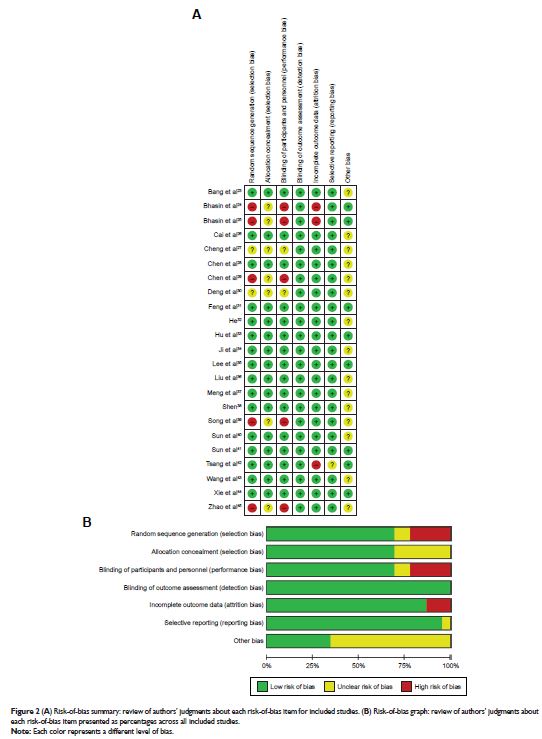9 0 6 7 6
论文已发表
注册即可获取德孚的最新动态
IF 收录期刊
- 2.6 Breast Cancer (Dove Med Press)
- 3.9 Clin Epidemiol
- 3.3 Cancer Manag Res
- 3.9 Infect Drug Resist
- 3.6 Clin Interv Aging
- 4.8 Drug Des Dev Ther
- 2.8 Int J Chronic Obstr
- 8.0 Int J Nanomed
- 2.3 Int J Women's Health
- 3.2 Neuropsych Dis Treat
- 4.0 OncoTargets Ther
- 2.2 Patient Prefer Adher
- 2.8 Ther Clin Risk Manag
- 2.7 J Pain Res
- 3.3 Diabet Metab Synd Ob
- 4.3 Psychol Res Behav Ma
- 3.4 Nat Sci Sleep
- 1.9 Pharmgenomics Pers Med
- 3.5 Risk Manag Healthc Policy
- 4.5 J Inflamm Res
- 2.3 Int J Gen Med
- 4.1 J Hepatocell Carcinoma
- 3.2 J Asthma Allergy
- 2.3 Clin Cosmet Investig Dermatol
- 3.3 J Multidiscip Healthc

间充质干细胞移植作为亚洲缺血性卒中的有效治疗策略:关于对照试验的一项综合分析
Authors Xue P, Wang M, Yan GH
Received 2 January 2018
Accepted for publication 21 March 2018
Published 14 May 2018 Volume 2018:14 Pages 909—928
DOI https://doi.org/10.2147/TCRM.S161326
Checked for plagiarism Yes
Review by Single-blind
Peer reviewers approved by Dr Justinn Cochran
Peer reviewer comments 3
Editor who approved publication: Professor Deyun Wang
Objective: The aim of this study was to evaluate the efficacy and safety of
the mesenchymal stem cell (MSC) therapy in patients with ischemic stroke (IS).
Materials and
methods: Clinical trials involved in this
research were searched from PubMed, Web of Science, Cochrane Library, Embase,
Wanfang and CNKI database. Therapeutic effects of MSC therapy were assessed
according to National Institutes of Health Stroke Scale (NIHSS), Barthel index
(BI), Fugl-Meyer Assessment (FMA) and Functional Independence Measure (FIM),
and its safety was evaluated based on adverse events.
Results: This research covered 23 trials including 1,279 IS patients. Based
on our analysis, the overall condition of IS patients significantly improved
after MSC therapy, indicated by decreased NIHSS and increased BI, FMA and FIM
scores. Our analysis also showed that the treatment effects in the MSC
transplantation group were superior to those in the control group (routine
medication therapy) with statistical significance for NIHSS (1 month after
therapy: odds ratio [OR]=-1.92, CI=-3.49 to -0.34, P =0.02; 3 months after therapy:
OR=-2.65, CI=-3.40 to -1.90, P <0.00001), BI
(1 month after therapy: OR=0.99, CI=0.19–1.79, P =0.02;
6 months after therapy: OR=10.10, CI=3.07–17.14, P =0.005), FMA (3 months after
therapy: OR=10.20, CI=3.70–16.70, P =0.002; 6 months
after therapy: OR=10.82, CI=6.45–15.18, P <0.00001) and
FIM (1 month after therapy: OR=15.61, CI=-0.02 to 31.24, P =0.05; 6 months after therapy:
OR=16.56, CI=9.06–24.06, P <0.0001). No
serious adverse events were reported during MSC therapy.
Conclusion: MSC therapy is safe and effective in treating IS by improving the
neurological deficits, motor function and daily life quality of patients.
Keywords: mesenchymal stem cells, routine medication, ischemic stroke,
meta-analysis
